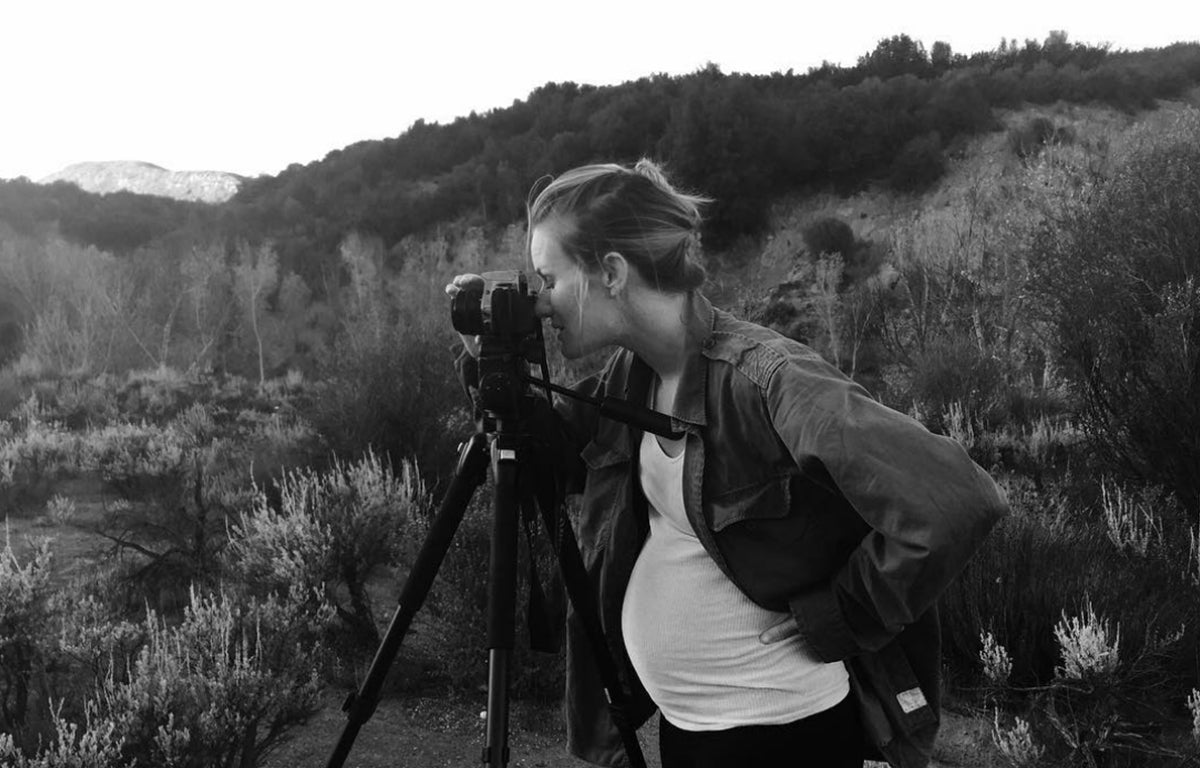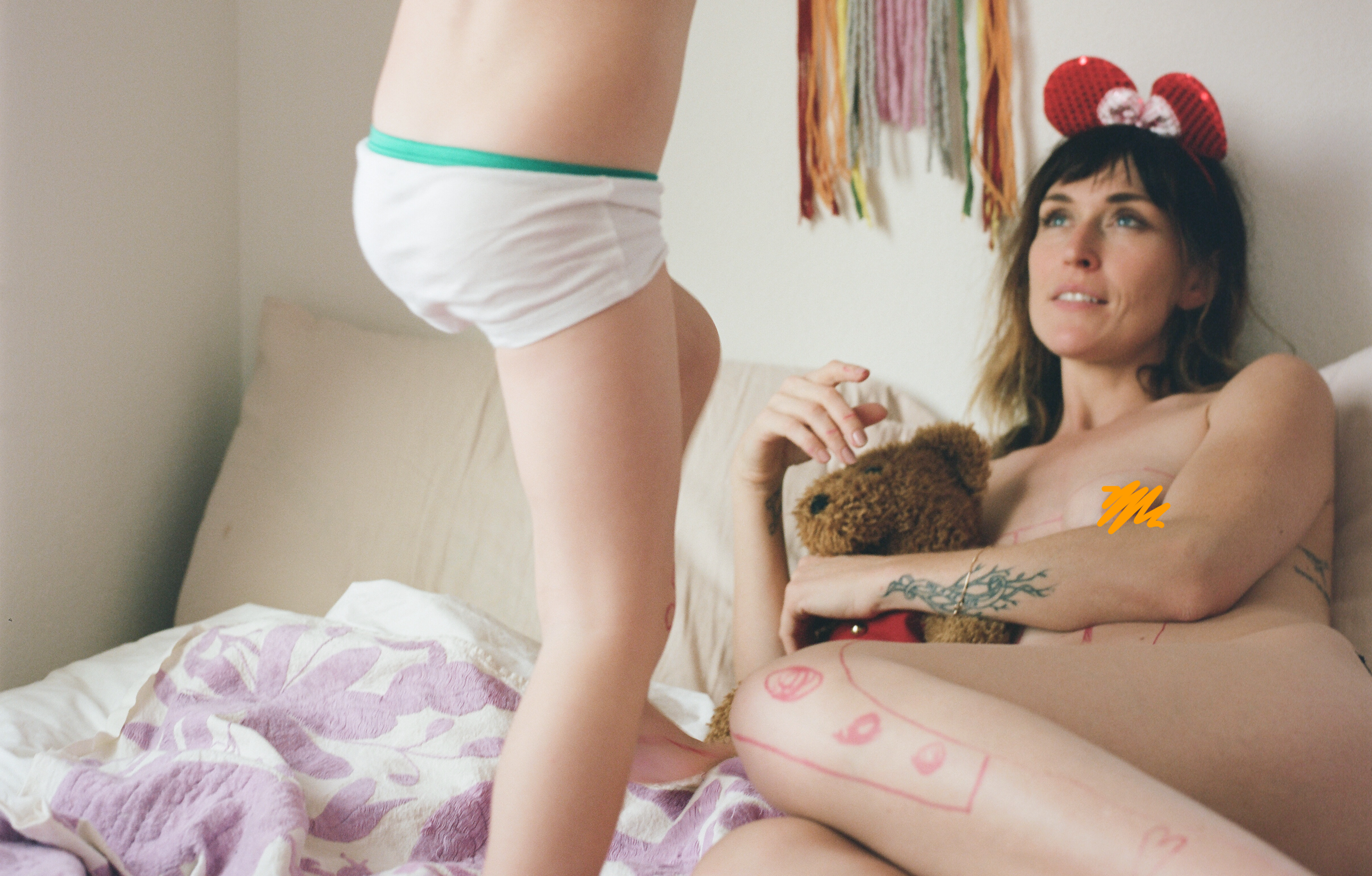Moms of LA: Kiana Reeves
Interview and photographs by Rebecca Frances Burns

Tell us about your path to motherhood. What was it like having baby in your 20s, when personal identity is constantly evolving?
So, I got pregnant at 24. What are those moments in life where there’s an irrevocable change in your path — birth, death, maybe disease, or severe bodily injury. Having a child is one of those, it's so serious. I spent [Teave’s] first year wrapping my head around it, every day thinking to myself, "Whoa, this is real?” It taught me so much about my perceived limitations versus what I’m actually capable of. For instance, I did anything I could to be with him every single day. I moved home. I went on food stamps. I worked at the farmer's market for my grandma. I started babysitting. Being with him was the priority.
How has LA influenced you personally and as a mom?
At first, we moved here, created this amazing loft in downtown LA and nestled into a really urban environment. Walking around the block with a stroller and driving through skid row every day, it really opened my understanding of how to live a creative life. There’s this timeline — going to college, getting a nine-to-five job, finding your husband or wife — it's this standard thing you see in other cities across America. LA has been a huge influence for me in following the beat of your own drum. Ideally, though, I want to raise my kids in the jungle (Teave was born in Hawaii, on Kauaʻi). Here, I'm taking my time to build a life that feels really satisfying to me, for us, so I can support them. But are they truly benefiting? There’s a relationship with the earth that you only get to build when you're super young and super open, so that it stays with you for a lifetime. I really want that for them.
How do you navigate topics like vaginas and menstruation with two boys?
We've had some really amazing conversations about it. I talked about menstrual cycles and how every month, I make an egg. If the egg is not fertilized, that's when I bleed. I taught River about “my moon.” He really gets that, when I say, "I'm on my moon.”
The vagina conversations have been funny. I’ll be getting out of the shower and River will be like, "Mommy, you don't have a penis. You have a butt on your front." I tell him, “That is a yoni. It's called a vagina. That's where you came out of." Another one went like this:
River: I see your yoni.
Me: Yes, that's my yoni. That's where you were born. You came out of there.
River: No.
Me: Yes, you definitely came out of that.
River: But that's too tiny. That's too owee for you.
Me: Yes, it was too owee for me but it happened.
Have you struggled with your postpartum body?
I think what’s changed the most for me on my body is my breasts. They are a lot lower, my nipples are way bigger. If I ever have a moment where I feel self-conscious about it, I try to really move into deep appreciation, instantly. It's one thing to have a lot of external negativity placed on female bodies but to internalize that, it's so harmful. I'm trying to deconstruct that in my own life. Also, and especially after giving birth, I wondered how it was going to feel to have sex and feel sensation. Also, how it was going to feel for my partner who, at the time, was a man. There were moments where there weren't gentle conversations around it — where I’d be like, "I can't believe you said that to me." What was really important for me was the sensation. You can lose a lot of sensation from vaginal birth, and you need to be able to work through that.
What's the biggest misconception about being a mother?
Particularly for stay-at-home moms, that it's just an easy thing. Really, it’s by far the hardest job I’ve ever had, because you have to be so attentive. You're in the role of caregiver, cleaner, cook, medical professional — and all of it together at the same time. In my mind, that doesn’t get enough credit or the deep respect culturally it deserves. It shows up in our lack of paid parental leave, in our lack of supporting more part-time positions. I don’t think there is respect for motherhood in the way there should be, and in a profound way, it affects generations of people.





